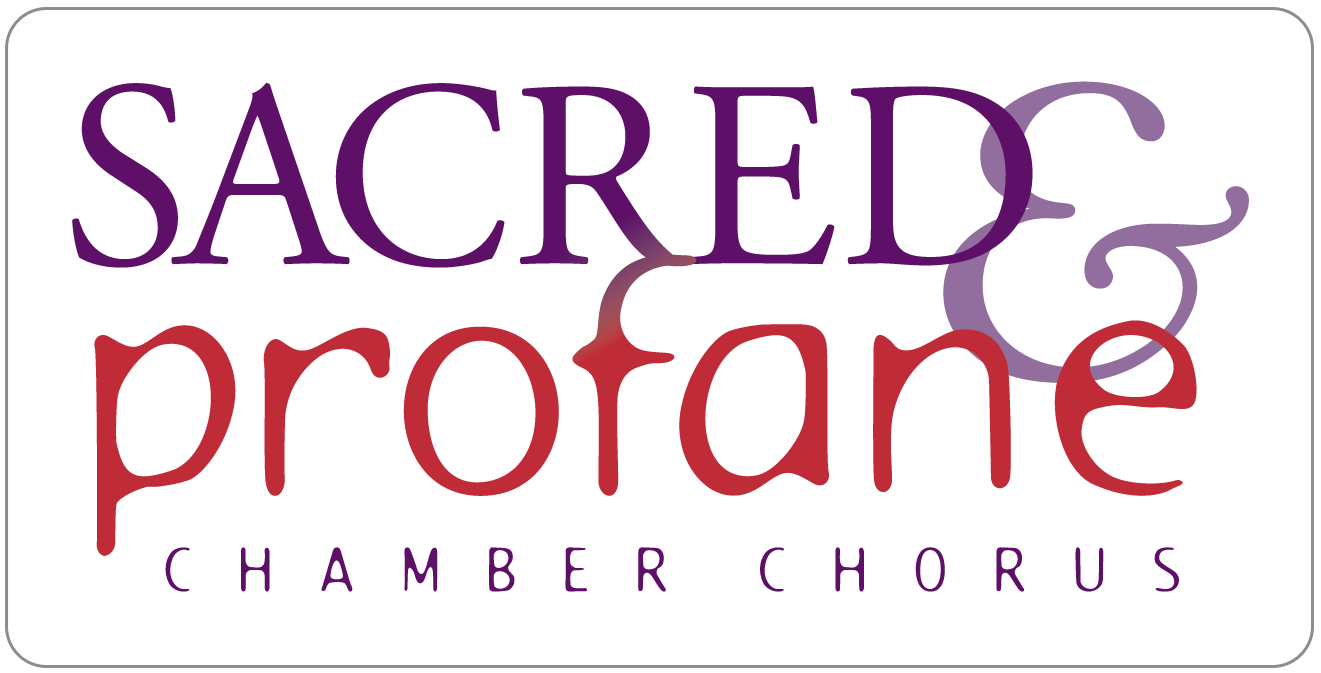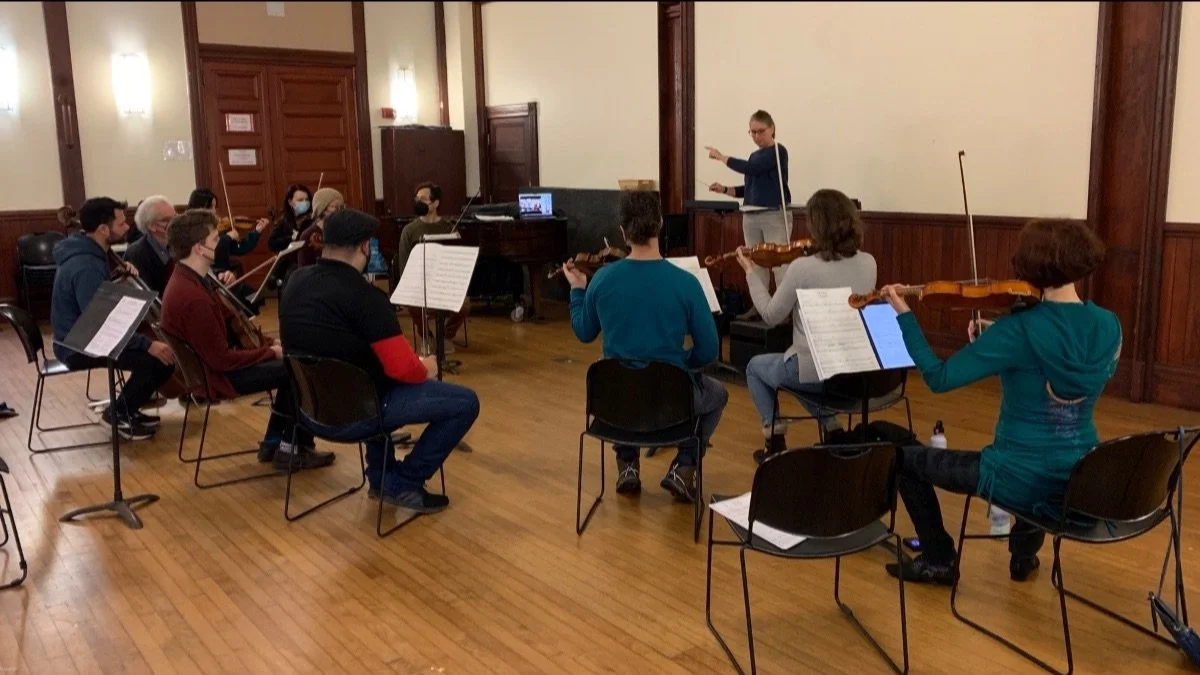Dear Friends of Sacred and Profane,
I feel like I’ve been a bit redundant in my last few letters to you. I often say things like: “I had no idea when I programmed S&P’s upcoming concert how relevant it would feel when the concert arrived,” but this one is quite a bit more on the nose in that regard. Building a concert program takes anywhere from 1-3 years. S&P’s upcoming concert on May 10th and 11th, Giving Voice: Settings of Speeches started to percolate a number of years ago. I love settings of non-poetic texts, so I started collecting settings of speeches. This program was finalized last spring. And then November 6th happened, January 20th happened, and everything since happened, just as we were digging into settings of speeches of all kinds, some light hearted, some poignant, but several political, purposeful, and defiant.
I’m happy to kick off the concert by celebrating our own San Francisco-based composer, Kirke Mechem, who turns 100 this coming August 16th! We will return to his masterful setting of astronaut Russell Schweickart’s poignant speech about being overcome by the beauty and fragility of the earth during his unattached spacewalk in 1969. By weaving the text with the Latin “dona nobis pacem,” “grant us peace,” Kirke sets it as an urgent call for peace and protection of the environment. We then turn to the Swedish composer Anna-Karin Klockar’s very challenging Speeches, with three movements that span a wide emotional gamut. The first movement is a comical take on the French suffragist Olympe de Gouges’ speech in which she asks men to justify their oppression of women, based on scant evidence of intellectual superiority. The second movement is an emotionally devastating setting of the surrender speech given by Chief Joseph of the Nez Perce tribe. This piece brought up a lot for many singers, and we had a long discussion about how to create a respectful space in our performance. The final movement is a rollicking setting of the courtroom statement that has become known as “a dog is a man’s best friend” speech, a sentiment I personally deeply share (well, cats too). The Latvian composer Ēriks Ešenvalds’ The Time Has Come provides a bit of warmth in its gentle presentation of Nelson Mandela's 1994 inaugural speech, in which he asks for national reconciliation and healing. I am hopeful that we will have a reason to return to this piece in the near future.
The awesome Trevor Weston has become a go-to composer for me in the past several years. I love Trevor’s skillful and complex writing and I’m excited to return to Visions of Glory, a poignant setting of Martin Luther King, Jr.’s final speech. In dialogue with that important speech, we will sing Joel Thomposon’s Hold Fast to Dreams, a setting of Langston Hughes that includes a virtuosic piano part, expertly performed by our fabulous pianist Paul McCurdy.
Paul also shares his pianistic gifts in Dale Trumbore’s Half the World, a setting of a speech delivered by Frederick Douglass before the International Council of Women in Washington, D.C. in 1888. By the way, Sacred and Profane is going to Washington DC in a couple of weeks to sing in the WorldPride International Choral Festival on May 24th and 25th! Tell your peeps in the DC area!
I am thrilled to present premieres of two commissions by phenomenal composers who set critical texts for us. I felt that we needed to include the words of our local gay rights activist Harvey Milk in this concert, and the best person to write that was in our own musical family, Adam Lange. I met Adam years ago, when he was a member of the University Choir at USF. I eagerly invited him to join S&P, where he now serves as the bass section leader. Adam’s Brick, his setting of Harvey Milk’s Gay Freedom Day Speech is poignant and beautiful, even imploring, where a lesser composer might have created something bombastic. Several of the singers, including me, are often moved to tears when we sing this one. We close our concert with Zanaida Robles’ The Root, her setting of Angela Davis famous quote: “I am no longer accepting the things I cannot change. I am changing the things I cannot accept.” It’s been a dream of mine to work with Zanaida – I have always loved how she tackles difficult topics in challenging ways in her music, and The Root is no exception, with neo-Medieval references in the use of modes and rhythmic structures that energetically builds to its powerful conclusion. We were honored and thrilled to receive Dr. Davis’ blessing for this musical setting of a quote that I have turned to often and that feels particularly relevant in this moment.
As singers, sharing our voices with each other and with you, our audience, is everything for us – our therapy, our community, our solace, our joy, and our expression. The way many of us know how to engage with this moment is with our voices. I hope this concert will be one small part in the fight to restore common sense and care for all people and the planet. I hope to see you there!
-Rebecca






